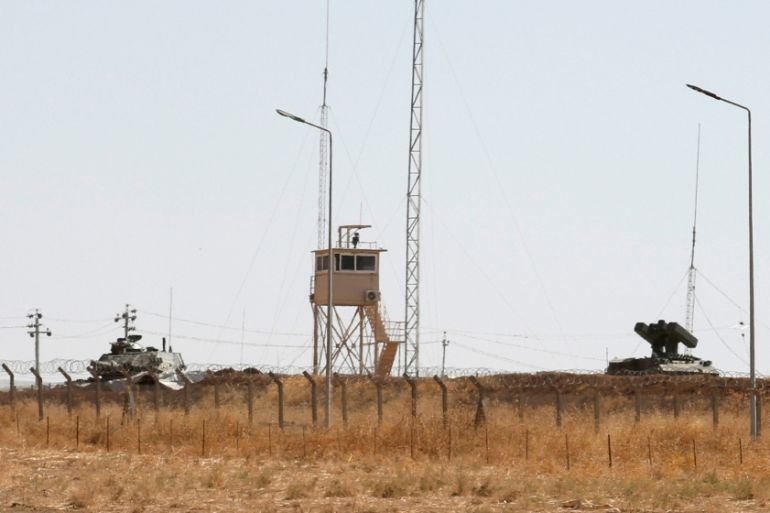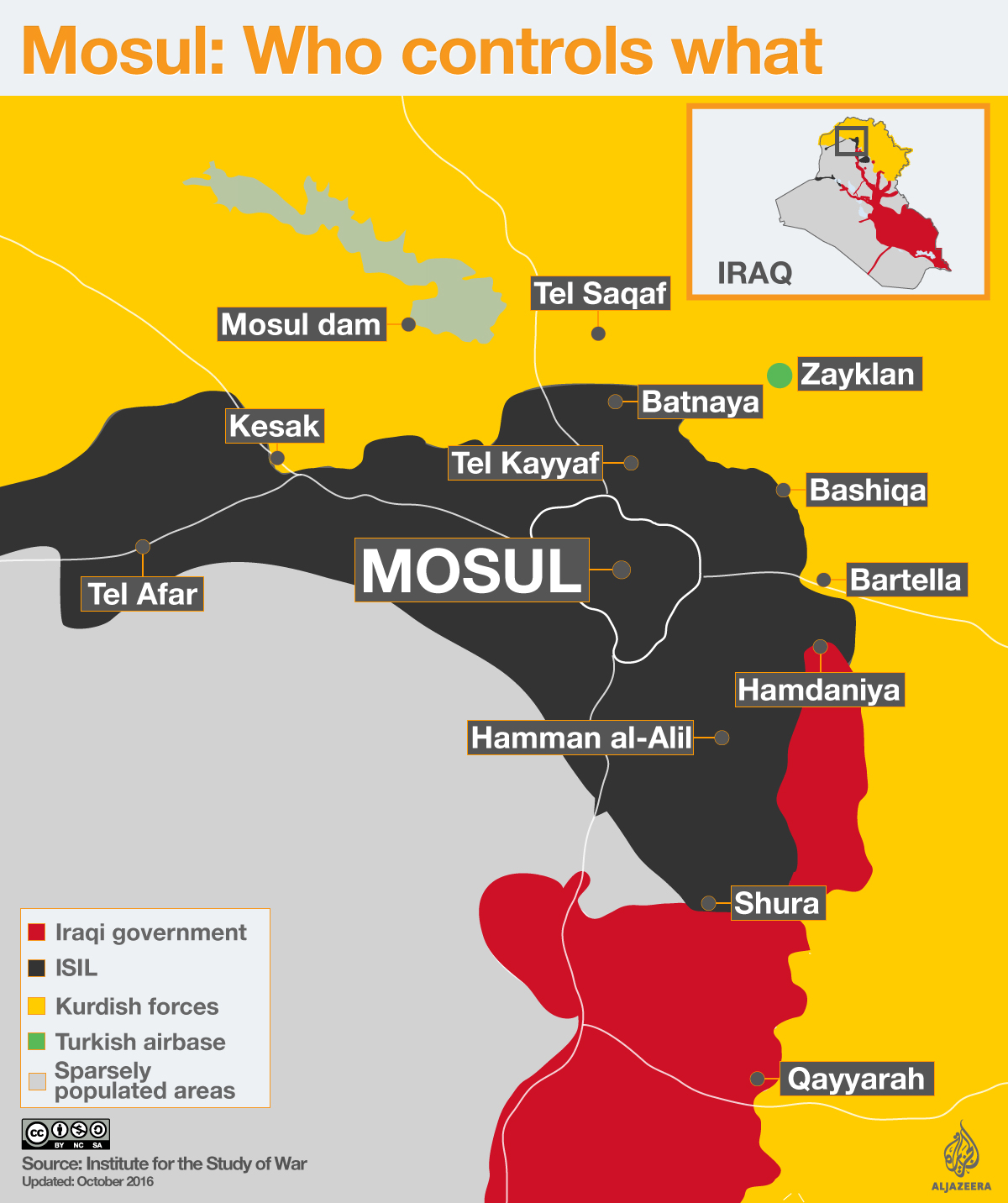Mosul: Turkey-Iraq row over ISIL operation
Turkey says troops using artillery near Mosul but Iraq rejects “participation” claim in ongoing Peshmerga-led operation.

Ongoing tensions between Turkey and Iraq have intensified after Turkey said its troops fired artillery rounds at ISIL targets near the northern Iraqi city of Mosul, following a request by Kurdish Peshmerga forces.
Binali Yildirim, Turkish prime minister, said on Sunday that Turkish troops stationed outside Mosul had provided support “with artillery, tanks and howitzers” following a request by Peshmerga forces.
Keep reading
list of 4 itemsThe Take: Remembering one year of war in Sudan
Russia-Ukraine war: List of key events, day 782
‘Crimes against humanity’ may have been committed in Sudan, says UN chief
However, Iraq’s joint-operations command on Monday denied Turkey’s claims.
“The spokesman of the Joint Operations Command denies Turkish participation of any kind in operations for the liberation of Nineveh,” a statement said, referring to the Iraqi province of which Mosul is the capital.
Later in the day, Mevlut Cavusoglu, Turkey’s foreign minister, said Turkish artillery fire had killed 17 ISIL fighters since the battle began and that four Turkish F-16 fighter jets were on standby to take part.
ANALYSIS: Analysis: What is Turkey trying to achieve in Iraq?
Turkey’s parliament voted last month to extend the deployment of an estimated 2,000 troops across northern Iraq by a year to combat “terrorist organisations”.
About 500 of these troops are stationed in the Bashiqa camp, training Kurdish and local Sunni Arab fighters.
|
|
“Peshmerga forces took action to clear the town of Bashiqa from Daesh,” Yildirim said, using the Arabic acronym for ISIL, or the Islamic State of Iraq and the Levant group, also known as ISIS.
“They asked for help from our troops at the Bashiqa camp and we are supporting them with artillery, tanks and Firtina howitzers.”
Mosul, home to up to 1.5 million people, has been the headquarters of ISIL’s self-declared caliphate in northern Iraq since 2014.
The battle for the city, which started earlier this month, is likely to shape the post-ISIL Iraq.
Thousands of Peshmerga forces are currently involved in a massive push around the town of Bashiqa, northeast of Mosul, where Turkey has its military base.
The forces of the autonomous Kurdish region, whose leader Masoud Barzani has close ties with Turkey, approve Turkey’s presence in the area and complained recently that the US-led coalition’s air support was insufficient.
Turkey had repeatedly stated it wanted a part in the operation, but Turkish presence in northern Iraq has inflamed Iraq public opinion and of dominant Shia parties in the federal government of Baghdad.

Haider al-Abadi, Iraq’s prime minister, is under domestic pressure not to be seen as tolerating the presence on his soil of troops from a country many in Iraq see as having abetted the deadly conflict in Iraq.
Only weeks before Iraqi troops and their local and international partners started their push to retake Mosul, Abadi gave warning that Turkey risked “triggering a regional war” by trying to keep its troops within Iraq’s borders.
Abadi’s government requested an emergency UN Security Council meeting to discuss the issue, and both countries summoned each other’s ambassadors in a mounting diplomatic standoff.
READ MORE: Messages from ISIL territory ask forgiveness for murder
Speaking in Ankara last week, President Recep Tayyip Erdogan said Turkey did not want to be part of any sectarian conflict in Iraq, but voiced concerns for the future of Sunni Arabs and Turkmens in Mosul.
“If we say we want to be both at the table and in the field, there is a reason,” he said.
Erdogan also said his country has a “historical responsibility” in the region.
Mosul remained under Ottoman control for nearly 400 years, until its capture by Britain in 1918.
Mosul served as the capital of one of the three provinces in Ottoman Iraq and was seen as an integral part of the empire.
Ottoman empire
The US recently told Turkey to respect the Iraqi government’s wishes regarding its military presence in the country.
“All of Iraq’s neighbours need to respect Iraq’s sovereignty and territorial integrity,” said John Kirby, State Department spokesman.
But there was a shift in the US policy regarding the conflict between Iraq and Turkey this week.
Ashton Carter, the US defence secretary, who visited Baghdad on Saturday and Erbil, the Kurdish capital, on Sunday, had suggested before his visit to Iraq that Turkey “should be given a role in the Mosul offensive”.
But speaking after a meeting with Carter, Abadi once again swiftly rejected the idea.
“I know that the Turks want to participate … We tell them ‘thank you, this is something the Iraqis will handle and the Iraqis will liberate Mosul’,” he said.
|
|